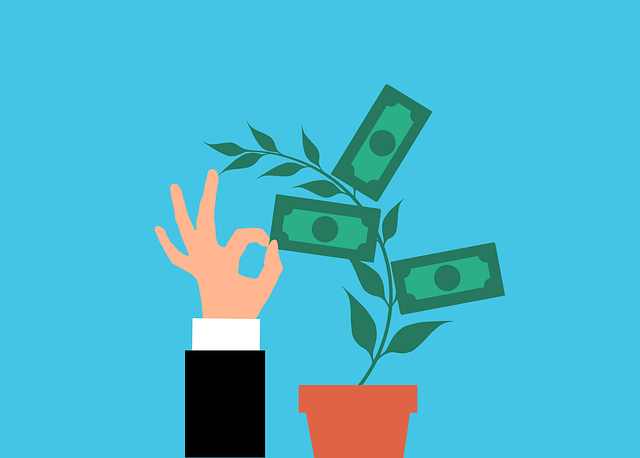Investments in young adult life can be very useful in planning your future. You might think there would be lots to invest but it is easy to start small.
you’re in your 20s, but you’re not sure how to invest your money – it’s a confusing world out there.
That’s why I often hear the question, what should I invest in?
things like cryptocurrencies, forex trading, penny stocks, etc…
Table of Contents
- How should a 20-year-old invest?
- Budgeting, getting started
- What would be a good investment for young adults?
- What Should 20-year-olds invest in?
- How can I invest money wisely at a young age?
- How do investors actually make money?
- 3 strategies on how you invest in your 20s
- What are the best investments for young adults?
- What are 3 tips for beginner investors?
- Conclusion
very often I don’t invest in these things because I honestly don’t believe in them.
People forget the basics and always chase the shiny objects because they think it’s the latest investment model,
and you know you need a long time to think about what you’re doing to accumulate the capital,
the money that you’ve, and yet you can lose money just like that,
so my goal for you is to make sure that you don’t make those mistakes.
Today I want to talk about something I think is very important: finances, especially how to budget and save.
How should a 20-year-old invest?
As you know, I’m not a financial advisor, of course, but I have a lot of experience in investing. I saw at a young age how important it’s to budget and save and how valuable every dollar is.
When you’re young, especially in your 20s,
there’s this narrative that you’ve to live your life to the fullest,
and a lot of people equate that with spending a lot of money on things that you can’t necessarily afford.
I feel like we’re constantly torn between these two sides:
Let me save money for the future, but you only live once.
Financial freedom and stability are the ultimate way to pamper yourself and truly appreciate yourself by earning money and then spending it.
If you’re living paycheck to paycheck, it’s at the expense of your own future, and I think it’s really important that you think about your future goals.
The decisions you make now will affect your finances in the future.

That often means you’ve to postpone immediate gratification. Financial responsibility is synonymous with freedom and self-determination.
Budgeting, getting started
Let’s get started,
One of the best investments is Budgeting, If you’ve no idea what a financial budget is, it basically means that you’ll only spend X amount of money in different categories every month.
In my case, I have a regular income, which makes budgeting easier, but for those who don’t have a regular income, how you divide the pie will vary from person to person.
When it comes to creating a budget, first and foremost, it’s important that you list all of your expenses and income.
What would be a good investment for young adults?
As a young investors, if you’ve never made a budget before, I recommend taking a look at your expenses and income for the last three months. take all the information and make a spreadsheet where you organize all your expenses.
I make this spreadsheet, and I divide it into different categories, like rent, utilities, transportation, groceries, eating out, entertainment, etc.
To budget for the future, as I said, you’ve to look at your past spending.
I think it’s important that you go through all of your expenses and put them into these categories.
Review how much money you’re spending, how much money you’re making, what debt you’ve, and what you’re putting aside for retirement.
Make sure you know exactly how much you earn and how much you spend so you know where you stand.
Try to assign a set budget and number to each category. It helps if you keep a weekly record of this in the beginning.
If you track your spending as you spend money, it forces you to pay very close attention to where your money is going, which I think is very helpful.
What Should 20-year-olds invest in?
Once you’re aware of your spending and income, it can be a little intimidating.
for the first time, figure out where you can put the different amounts of money.
50%of your income should be spent on things that are essential to living, such as rent, utilities, transportation, phone, bills, gas, groceries, etc.
30% should be spent on things that aren’t essential to life but bring you pleasure, such as entertainment and self-care. but be careful not to overdo it.

I strongly recommend setting up an emergency fund.
this is really important to save for your future.
I mean, anything could happen, for example, a pandemic COVID -19. Ideally, you should save for at least three months and then try to save for six months and keep going.
That should be a cushion in case something goes wrong because of course it does and it’s good to be prepared.
Start your retirement as early as possible, the younger the better for your future.
When it comes to building your wealth, the earlier you start, the better. If you don’t have a job that offers you a 401 k retirement account, you can use a Roth yourself IRA.
How can I invest money wisely at a young age?
When it comes to managing your money within this rule, I find it easiest to put it all on my debit/credit card for tracking.
Each month I fill out a spreadsheet where I write down everything I spent money on that month.
I break it down into sections, each with specific items. This forces me to be much more aware of where my money is going.
it’s easy to keep track of where you’re spending too much money.
In this way, I know that by purchasing something greater that I’ll enjoy in the future, or possibly be subtracted from something that’s a greater investment in my future.
How do investors actually make money?
I think it’s really important to set short-term and long-term goals. You can invest in yourself in different ways.
Start setting those goals and having them in your mind.
Let’s say you want to invest in real estate. Having that idea in your head as an 18 or 20-year-old will make a big difference in how you look at your finances and how you spend money day to day.
I think it’s good to ask yourself these things when it comes to major purchases or investments.
Another good tip for your finances is that you can set up automatic withdrawals at your bank, which is very helpful when your income comes in. You can put a portion of 20% in a savings account so you don’t even see it, don’t even touch it, and therefore it’s set aside for emergencies, debts, etc.
Avoid spending time with people who’ve really bad spending habits and you won’t be in the same position. if you have the same goals as you, it can really make a difference in where your money goes.
I really love this quote from Warren Buffett he says
don’t save what’s left after spending
but spend what’s left after savings
3 strategies on how you invest in your 20s
First Tip
If you’re in your 20s, I know it feels like you don’t have a lot of time, but you actually have more time than you think – one of the things that work for you is time to use and the power of compound interest.

Strategy number one is to invest in increasing your income. As you make more money in your twenties and increase your income, you’ll have more money to invest.
Instead of worrying too much about getting the maximum return, why not invest in yourself?
grow your network and expand your contact list, because your network equals your net worth, so there are many things you can invest in to grow your network.
Don’t rush into the market and buy all kinds of investment goods. Don’t do that, invest in yourself because you’ll always get the maximum return when you invest in yourself
Now it can mean different things to different people
Think about how you can invest in yourself, how you can increase your income, perhaps by acquiring new skills
It’s just a matter of changing your mindset and reevaluating what’s important to you and reevaluating the way you see the money.
Second Tip
There are three types of investments in this world, and these three types of investments have produced more billionaires and millionaires than anything else:
they are businesses, stocks, and real estate.
Most wealthy people have these three things as their portfolio. There are exceptions where they may have a few other things, but pretty much all wealthy people have either created their wealth in these three categories or hold it there.
Stop paying attention to so much noise out there, especially when you see someone who’s a buddy of yours they aren’t rich.
Look at the rich people, what’re they investing in? They don’t need sophisticated techniques because there are so many different categories of stocks, companies, and real estate.
You should choose a certain category, which you should master sensibly.
because the last thing you want to do is invest in something that you don’t understand is very, very stupid.
Only ever invest in something you understand. Take some time to understand it, and you don’t have to understand everything.
Nobody can master everything in real estate or stocks, there’s so much to learn. Keep it very, very simple.
Third Tip
I think you need three types of financial investments because most people have zero financial planning.
The very first plan you need is a passive plan.

What I mean by that’s it doesn’t matter what you do, it doesn’t matter how you make money.
that means you put some money aside, maybe invest in a low-cost index fund, and in 30 to 40 years, especially if you start in your 20s, you’ll accumulate a nest egg so you can retire. that’s not the only plan, but most people don’t even have that plan.
Your plan should be nice and boring.
The second type of plan is active investing, you’re much more involved, you’re more like an active investor, you learn, the more skills you’ve, the more sophisticated you become as an investor, and the higher the return you can get.
The third plan requires a different level of skill and sometimes you’ve to take a little more risk.
You don’t want to just do this, you’ve to do this first to make sure you’re going to win in 30 to 40 years, no matter what happens with those investments, that’s your safety net.
This strategy is so simple: set aside a few hundred dollars a month, depending on how much you make in 34 years, and you’re set. In the meantime, let’s work on a 10-20 year plan that helps us invest more actively.
The last plan the goals are to earn much more than what you earn right now and to double and triple your income every few years.
The best way to invest forget all the noise in social media and keep it very very simple invest it shouldn’t be an exciting thing keep it boring should be very repetitive.
What are the best investments for young adults?
If you’re in your 20s or 30s and planning for a comfortable retirement, you may not have many options, but one of the best is to invest early
Of course, to live a comfortable life, you’ll need a large fortune, and one of the best ways to achieve that, especially for the working class, is to invest your money.
In short, if you start early, you set the stage for your success
I’m going to look at some of the most important asset and investment decisions you can make at a young age.
What are 3 tips for beginner investors?
Index Funds Stocks or Mutual funds
Start investing in the stock market, Index Funds Stocks or Mutual funds are one of the best investments you can make before you turn 40. They have a very high risk, but the returns are among the highest. When you start your investment journey, you’ve plenty of time to make mistakes and learn from them, but you should always invest wisely and in a calculated way.

Stocks have an average return of 10% if you use the S&P 500 Index as a benchmark.
The truth is that not many investments have such a high return
When you build your index fund portfolio, you should also add bonds. Bonds may have the lowest yield, but they’re the safest. You should make sure that your portfolio contains about 10-20% weighted bonds. This way your investment is safer.
Another advantage of index funds besides diversification is that many index funds have low fees. Investment fees quickly cut into your returns, so you should avoid them as much as possible. When buying index funds, you should also pay attention to the tax implications.
Real Estate
You can almost never go wrong with real estate
Real estate is one of the best investments for several reasons. First, there’s almost always a shortage of housing, and real estate values almost always increase in value. The first step in real estate investing is to buy a home. Owning a residential property reduces your expenses, such as rent. Once you’ve purchased your own home, you can move on to building other commercial properties.

These can be apartment buildings, townhouses, offices, and other real estates.
However, if you can’t invest directly in the real estate market, there are other options.
There are several crowdfunding platforms where you can invest in real estate along with contributions from other investors.
These investments are known as REITs (Real Estate Investment Trusts).
Exchange-Traded Funds
ETFs, are very similar to the index funds we’ve already talked about. ETFs are baskets of securities with multiple assets such as stocks, bonds, and gold, making them similar to index funds. They trade like stocks, meaning investors can buy and sell shares on an exchange. Their versatility makes them valuable tools for investing in either broad market indexes such as the S&P 500 or sectors such as technology or health and even sub-sectors such as social media or robotics.
Education
According to research, your 20s and early 30s are the easiest time to acquire new knowledge. Therefore, this might be the best time to get an additional degree. Acquiring an education is important because it can pave your way to career success. However, you need to know that not all education or learning is a win-win.
Be careful, because some learning can be labeled as a hobby and probably can’t be monetized. If you want to invest in education, you should first look for jobs that suit you and that you can succeed with.
Conclusion
I hope these tips are helpful in learning how to invest your money in your 20s and how to be more mindful and responsible with your money and save for your future. it is all about your risk tolerance which can affect your growth
